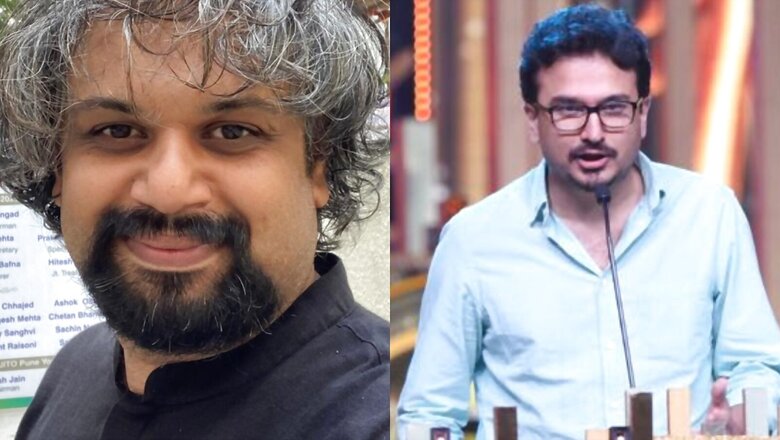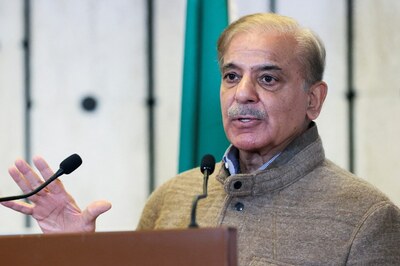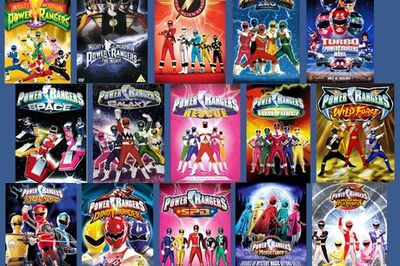
views
A lot goes into the making of a film beyond what we see on screen. While the actors and the director hog most of the limelight, several other artists and technicians, depending on the size of the production, work tirelessly on and off the sets to bring a project to fruition. New departments are being created besides the traditional costume, music, cinematography, etc, as filmmaking evolves around the world.
This News18 series, Off-screen Stars, is to celebrate people working behind the camera during production, as well as those performing various pre-and post-production jobs, that are essential for a project to come alive.
It would be mentioning the obvious if one says writing is the foundation stone of a movie. Simply calling them background artists would be demeaning their effort, but such is the situation of a writer that despite birthing a story, they remain behind the curtains. Which is why, we often forget to associate their faces with the movies we see, the star cast takes the maximum of our attention. As much as their stories leave a mark on the audiences, do writers themselves get the chance to leave their imprint? Are they credited for the success of a production the same way they bear the brunt of the criticism?
Writers Nilesh Maniyar (The Sky Is Pink, Margarita with a Straw) and Akshat Ghildial (Badhaai Ho, The Intern) answer these questions and give us an insight into their world.
Writers often bear the brunt of the criticism when the film is not good but when it is a hit, people generally associate the film with the stars or the directors. Amid this, do writers get their due recognition?
Nilesh: Writers don’t get their due recognition because they are not pitched directly by the marketing agencies of our studios. It’s got nothing to do with audiences. You need three-four faces to sell. If you’ve got a star to sell, you sell them, if you don’t have a star and you have a producer to sell, you sell him. If you have a director to sell, you sell him. But if you have a star director, producer, the marketing people don’t want too many people to sell; the job becomes difficult. Writers who give back to back three hit films become stars. So they don’t mind selling them. But there is no golden rule, which should be that everything starts with writing. The child’s journey starts with the mother. So you cannot suddenly say family is more important than the mother. Mother is part of the family, but the core still remains with the mother. And that recognition doesn’t come through because there is no selling point for a writer other than the script. And audiences are not interested in discussing the script technically. So then marketing agencies fizzle out there, and writers don’t get their due.
Akshat: It sometimes happens that the actors or directors get associated with the films because those are the people who are front lining the film. Actors are the most saleable commodity of a film. People do think about the star before they step inside a theatre. The same goes with directors, some of our directors are superstars and they don’t need anyone else to promote their films. But now it is changing a little bit because all the actors and directors are being a lot more democratic in terms of giving credit to the writers and the other technicians in the film. And increasingly, we see that people are giving attention to these other technical aspects of filmmaking as well. So it’s a welcome change, it’s happening slowly. There was a time when Salim-Javed were the biggest names of the industry, their name used to be bigger than the actor and the director. So we are far away from that but whatever is happening is a good positive step towards everyone getting due credit for the success of a film.
So, what are the few things that you think can change in the industry for writers to get more appreciation and recognition?
Akshat: Writers need to get paid more. If you are bringing an original idea, then you need to get paid more for what you are bringing to the table. It will be great if writers are credited for their work a little more and it is more upfront. The writer’s journey is way longer on a film than every other technician associated with it. If you conceive an idea and then develop it into a script, it takes months, sometimes a year or two. But, as a writer, your job doesn’t get over there. You are then required to be on the shoot, and stay attached to the film till the dubbing and complete post-production. So, this itself is a journey of close to two to three years. So I think we need to get paid and credited a little more for what we do.
How do you keep it innovative?
Akshat: With every subsequent film, you shouldn’t fall into a trap of writing the same kind of stories. You don’t know when that trend will run its course, and you have to adapt to something else. So, it is very important to keep on writing varied stuff. The industry pigeonholes you very easily. After Badhai Ho I got almost 5 films about pregnancy as if I’m an obstetrician or gynaecologist and know everything about pregnancy. So, people suddenly pigeonholed me as a guy who can write pregnancy films and I had to turn those offers down because it didn’t make sense for me to do similar kind of stuff. I think that is a constant struggle. You will have to keep on changing genres and keep on changing the milieu that you explore in the things that you do. It’s on you to break that slot.
Nilesh: We don’t have enough space for indie writing in this country. Before Sky is Pink got picked up by Siddharth Roy Kapur and Ronnie Screwvala, I was intending to produce it in an indie way. I got a German co-producer on board, and I realised, in Germany, a lot of regional fundings happen. Government funding that happens for cinema, for art. You should do cinema as a business, but art virtually enriches and enhances our society. I feel there should be a quota, like 25% of cinema that comes out of the country has to be indie cinema. Only then we will leave something behind for generations to savour.
While writing marginalised characters or on certain communities, do you feel the constant pressure that you might misrepresent them?
Nilesh: It’s absolutely scary to write about subjects and characters, which are vulnerable, which are fighting their own battles in society at large, trying to make their own space, in a very ignorant society, otherwise; it’s very scary. And how you do that is by not being an arrogant, egoistic writer who says I know it all. I didn’t know much about disability or the LGBTQ movement before I ventured into Margarita With a Straw. So when you approach a subject, you have to go to the experts of the subject, you have to really respect them and value the opinion of the people in the movement. You have to hear them out, and hear them all. And then you come back to the table and try to incorporate all that. But I’m not making a documentary. I don’t have to stick to all these opinions to the tee. But let me see, I don’t do anything wrong or injustice to it. At the end of the day, I still have to tell a story of a character, which has to be felt by the heart. So yeah, it’s scary, but it’s challenging, and it’s rewarding. The thing that I love the most about Margarita With a Straw and The Sky is Pink is that I have come out of these journeys as a more informed human being.
On the changing nature of the content:
Akshat: Right now directors, producers and even actors are trying to understand the fact that content is really important. They understand that people right now are exposed to world cinema, Netflix, Amazon, so we cannot churn out the same stuff and dish it out to the audience over and over again. So there is a greater emphasis on content these days, which is very heartening to see.
Read all the Latest News, Breaking News and Coronavirus News here.




















Comments
0 comment